On a recent trip to Europe, I traveled to some interesting places, mostly by train, but sometimes by plane or bus. Sometimes there were great views out the window. At other times, there were acoustic barriers. On another trip to Hong Kong, I traveled by metro, by bus, and by car – and in all cases, there were acoustic barriers.

Yes, I know, this one is solid concrete, and looks like a prison camp with the barbed wire. Unfortunate image for Austria.
Acoustic barriers are an accepted fact of life in many countries, installed as an attempt to mitigate loud noise conditions especially where transport and human life come into close contact. Acoustic barriers work – and presumably work very well, otherwise they wouldn’t be installed! Anywhere that a new roading or rail project cuts through a residential area, then acoustic barriers are provided almost as a matter of course, to help contain the noise at source. Noise, once out in the open, can travel long distances. In some cases the barrier is needed only at the side of the train line – in other cases it is more appropriate to have a full containment of the traffic corridor.
Because I’m an exciting type of guy, I took lots of photos of these barriers, and here are a selection of them, just for you!
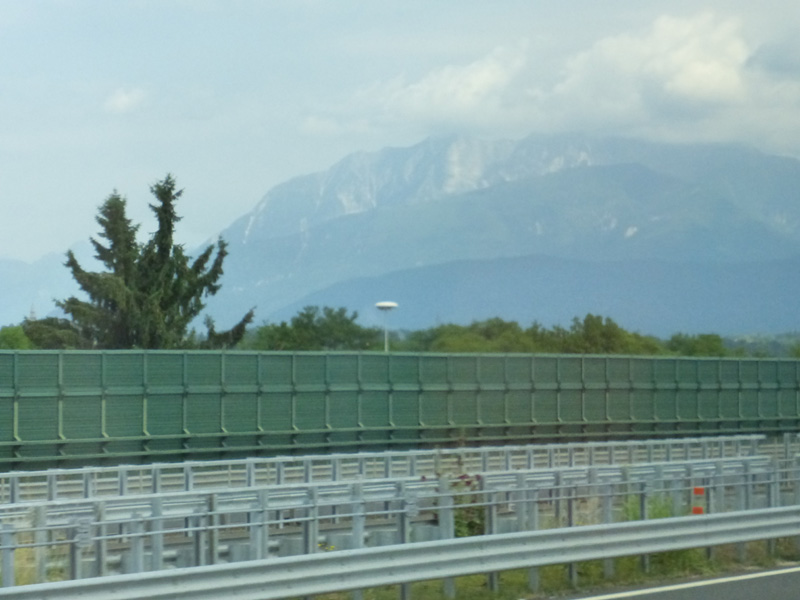
Another from Austria, i think in perforated steel panels. Hard to focus from a fast train.

This one is also in Austria, the view from the bus – and it is glass, or perhaps acrylic / perspex.
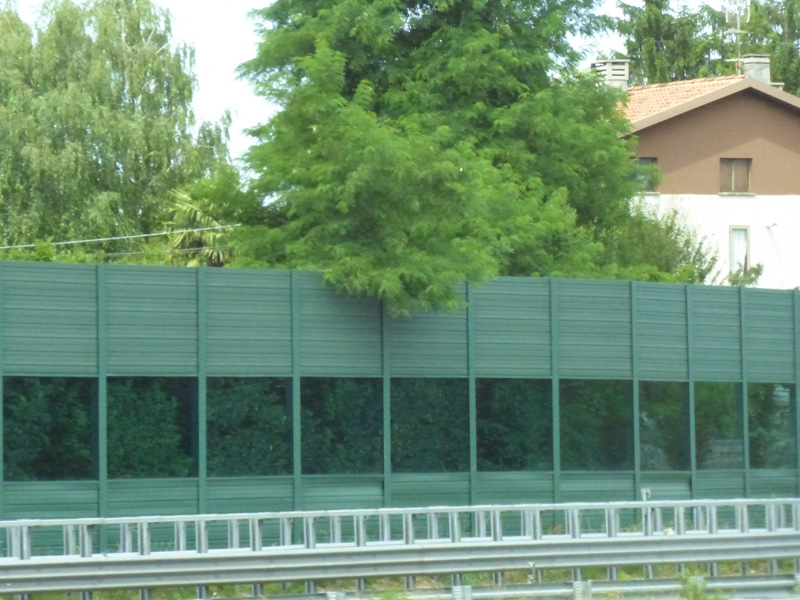
And this little Austrian is a mix of painted metal and perspex. Hooray, a (sort-of) view out, in this case of some more of the abundant greenery.
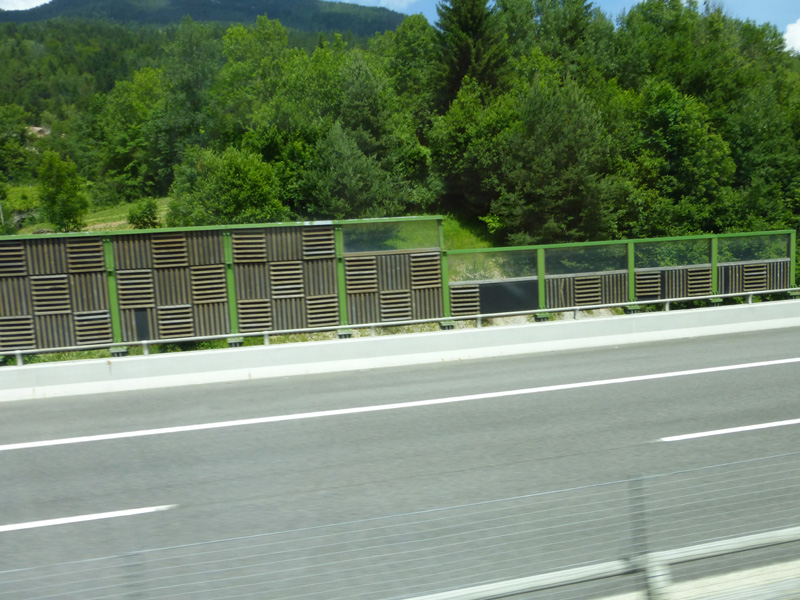
There were kilometre after kilometre of this type, which shows the acoustic waffles attempting to break up the sound from the train. Every time we passed a nearby town, or a farmhouse, these acoustic panels were used.
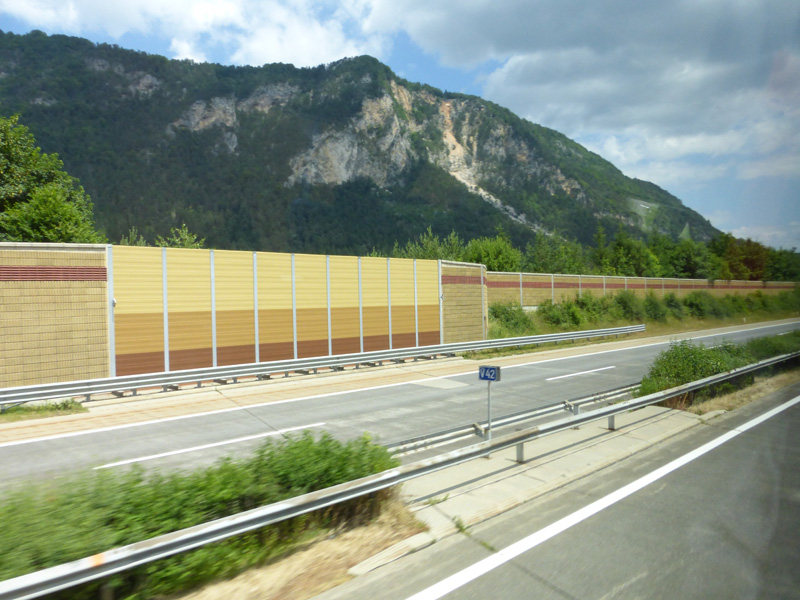
On occasion, they were rather colourful. These ones were brick, I think. Difficult to tell without leaning out the window and hitting them with my head. Or a hammer.

In Germany, their acoustic barriers were covered in grafitti. The Germans love grafitti. Actually, that should say: SOME Germans love grafitti.
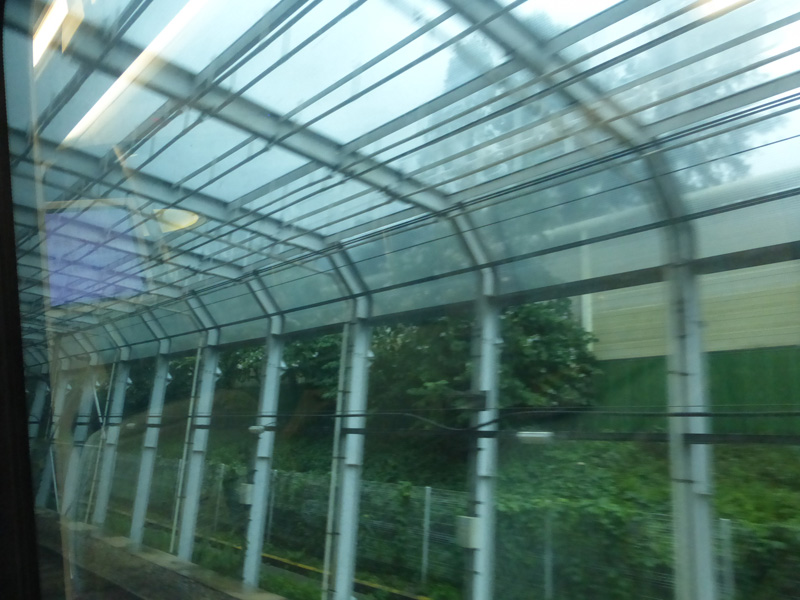
In Hong Kong, by comparison, everything is spic and span. I think they shoot you if you even think of tagging a wall. No grafitti at all, just lots and lots of well-designed and almost totally soundproofed glass structures around roads, railways, and most of all, between people and vehicles.
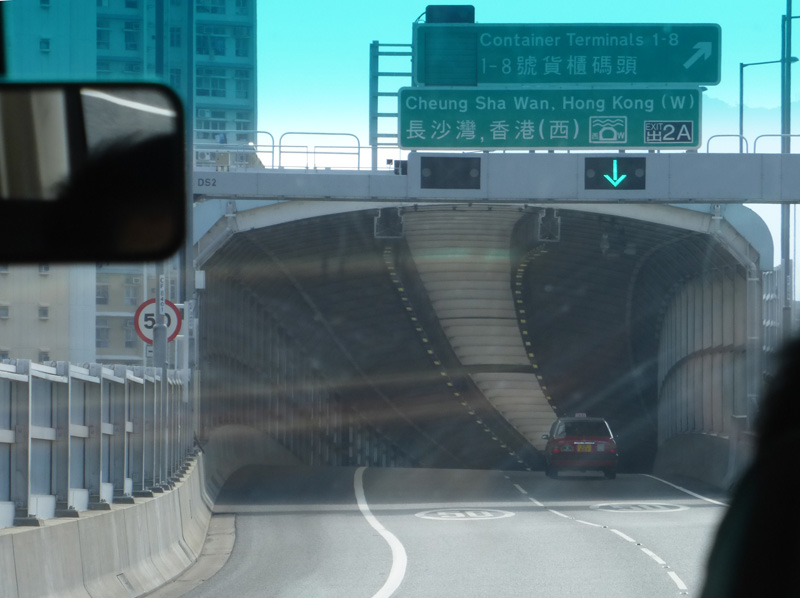
And here, because I know you’re getting just all too excited by this post, is the final image from Hong Kong, where the 50km/h flyover disappears into an underground tunnel. Much like a certain project in Wellington. You can notice the glass standard acoustic balustrading on the side of the flyover, and then it rises up to enclose the tunnel completely. Over there, they don’t argue that there will be no noise from a flyover – they know very well that there will be significant noise, and they plan to contain it at source, and limit its spread. Lessons to be learned for our local road-builders perhaps…
Post-script: Curiously enough, I’ve had a request to show what the outside of these acoustic barriers look like. A bit hard, that one, as I was on the inside of the box looking out, not the other way round, but a search on google streetview reveals some interesting pictures of the outside of some of those very barriers. Just for you then: MORE Acoustic Barriers!
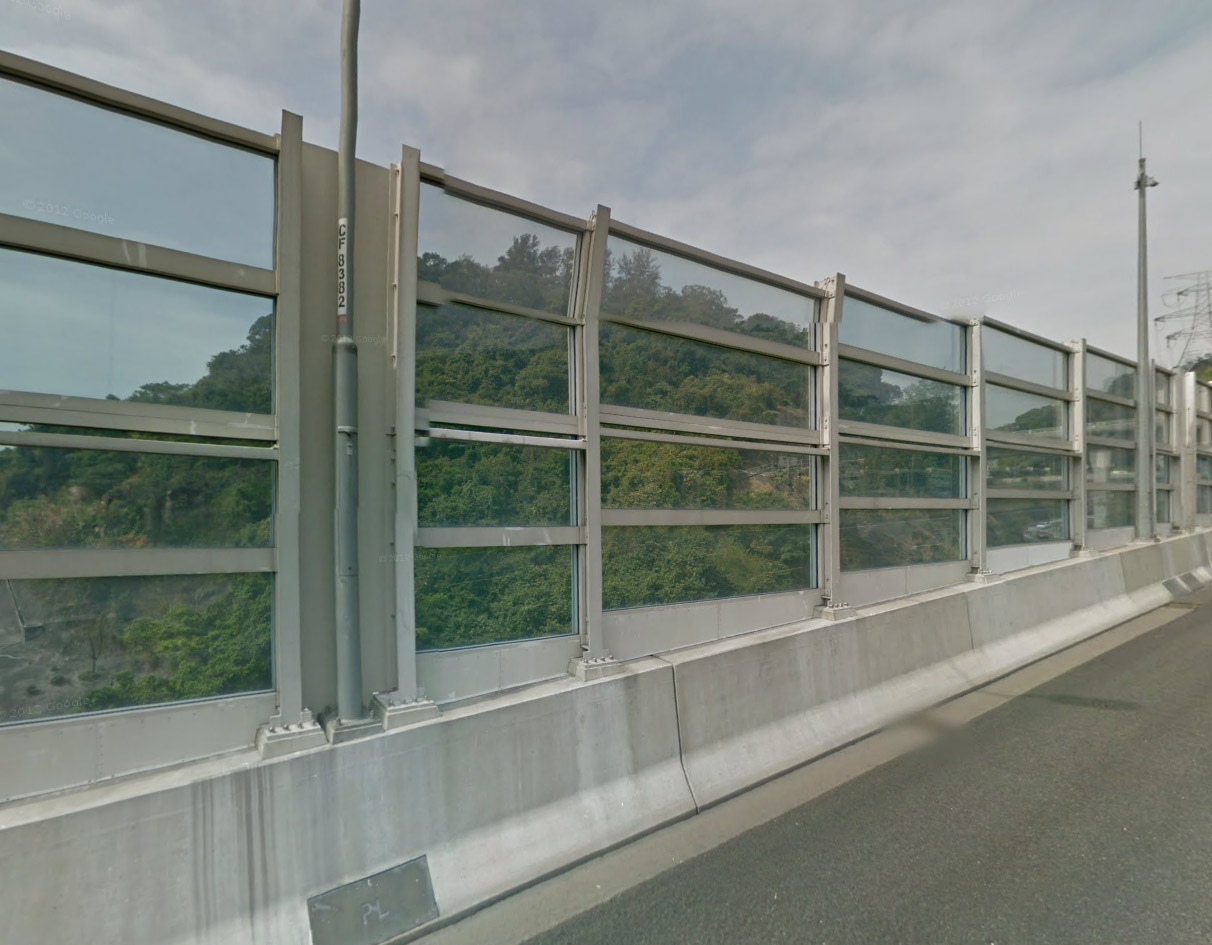
This is a close up of the glass barrier in Hong Kong. Or, seeing as it is Hong Kong, perhaps it really is plastic.
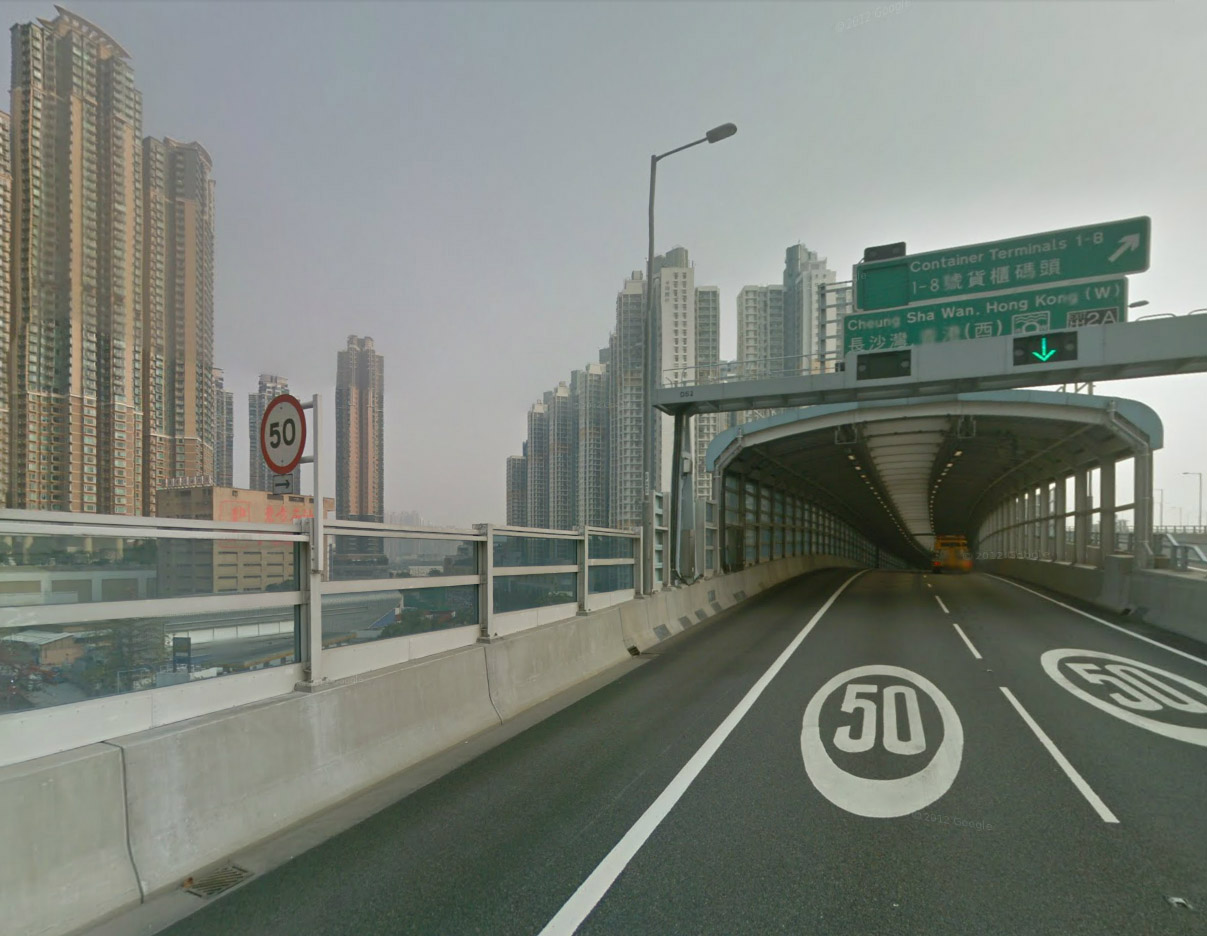
Here is the outside, as you approach.
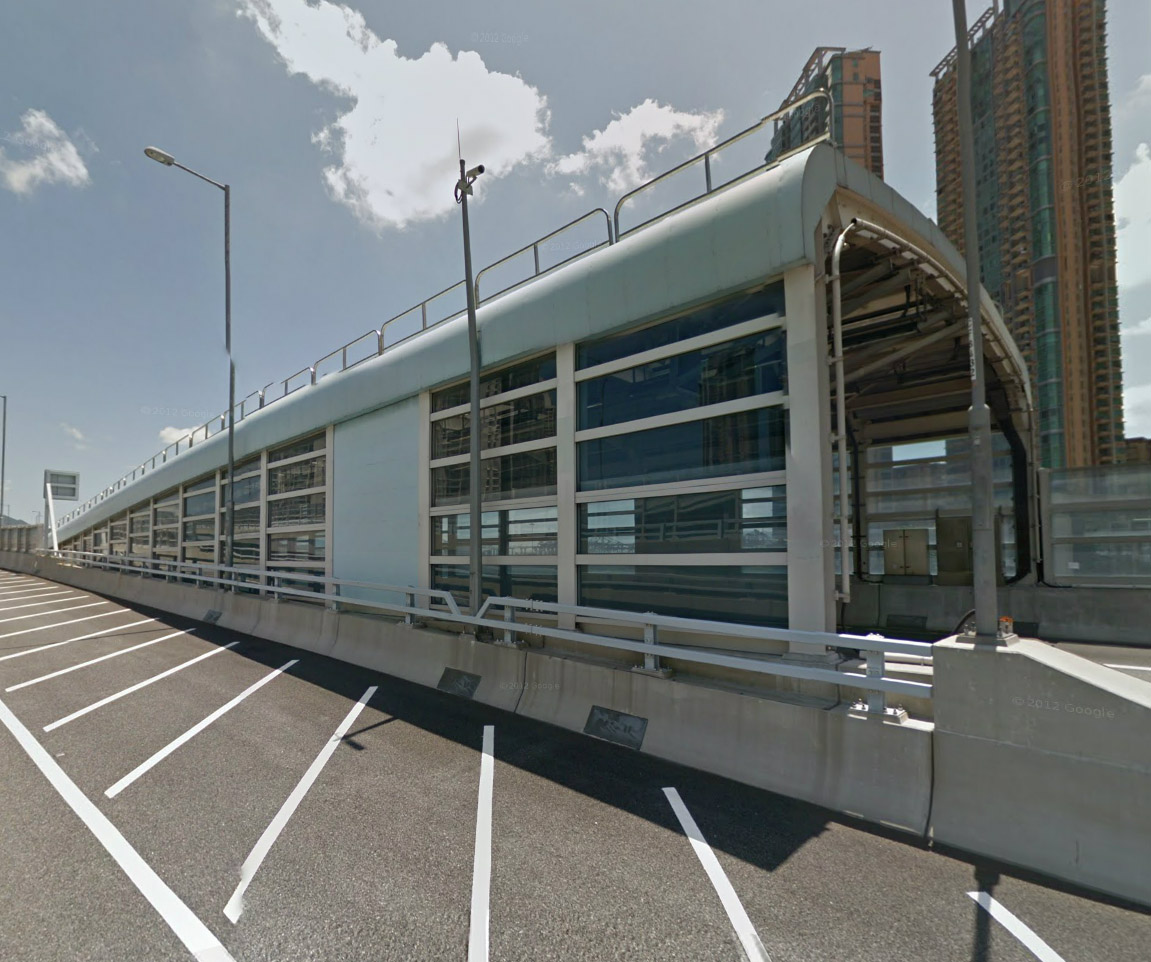
This shot is from the neighbouring lane, as you drive past in your red Toyota Crown taxi. An odd thing that: Toyota Crowns are a hideous ugly looking car, that haven’t been seen in NZ for years. Want to know why? They’ve all gone to Hong Kong instead.

And here it is from the backside, as you drive off down the highway, without so much as a backwards glance (except in this case of course, as I am here looking completely backwards).

And this of course is right inside it, as you’re tootling through. Rather strange though: there is no traffic. How very odd.

Leave a Reply